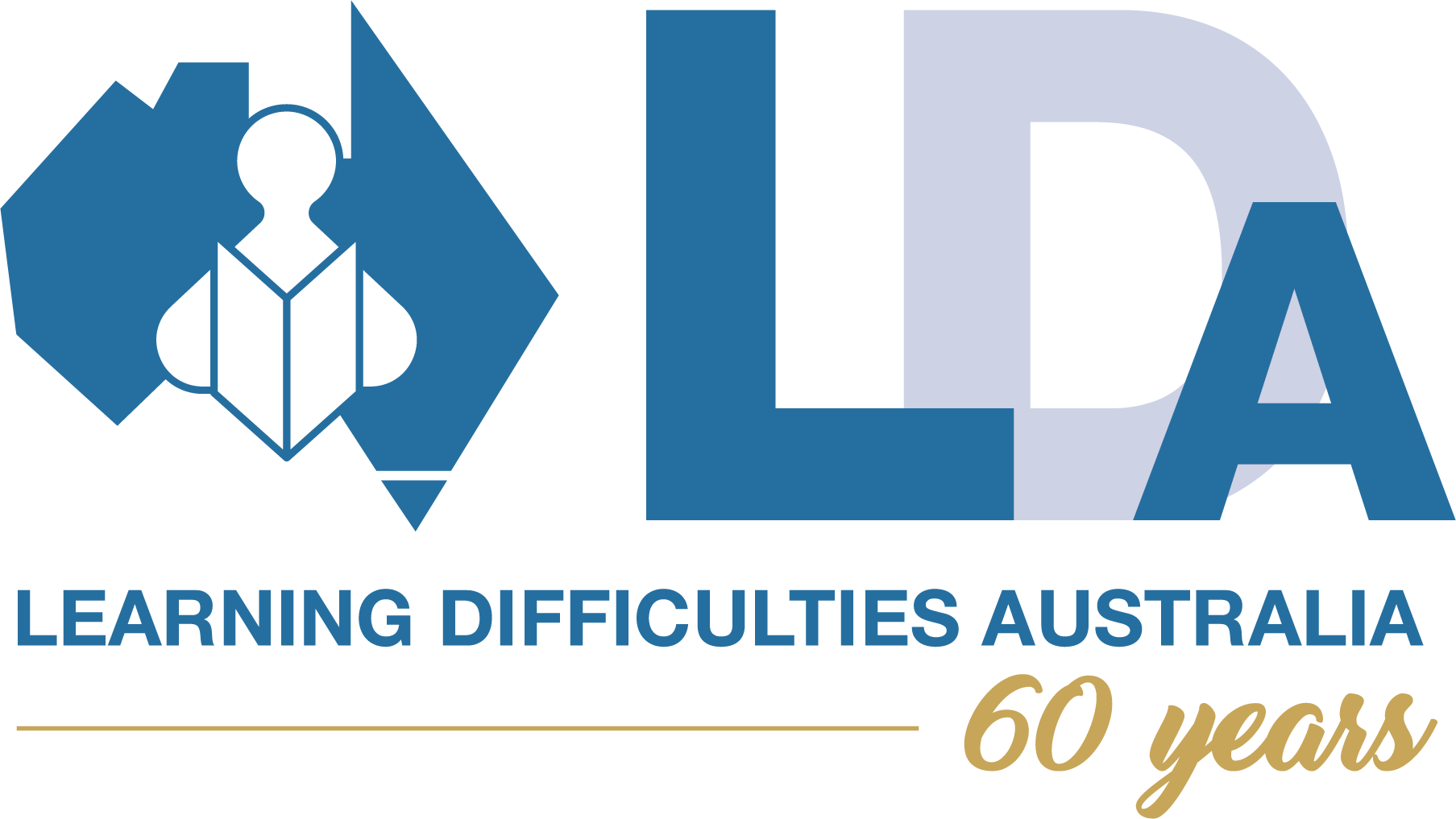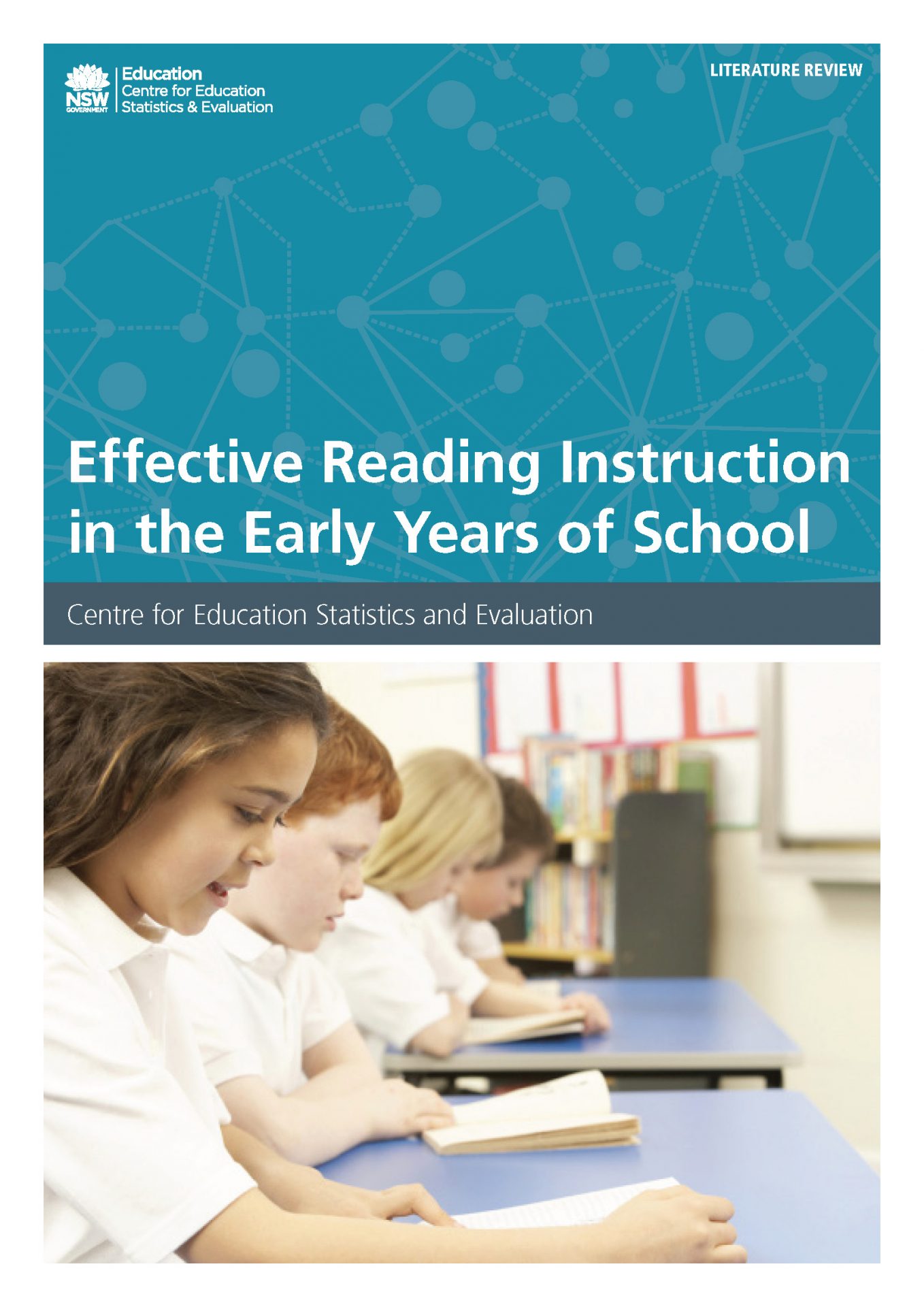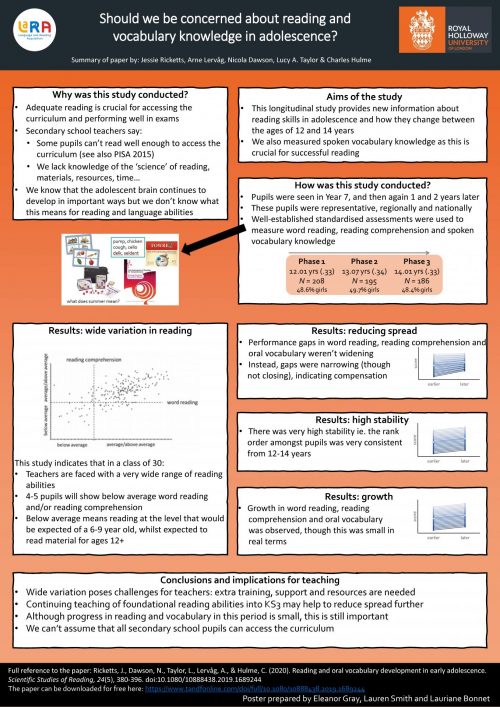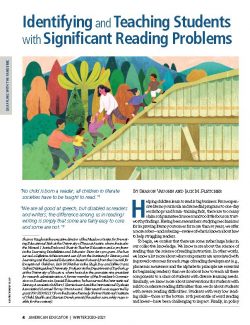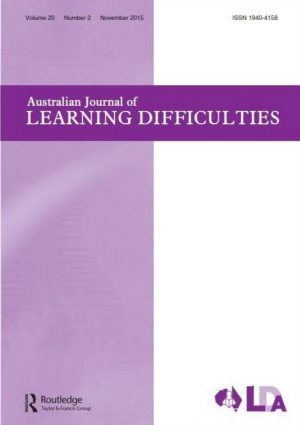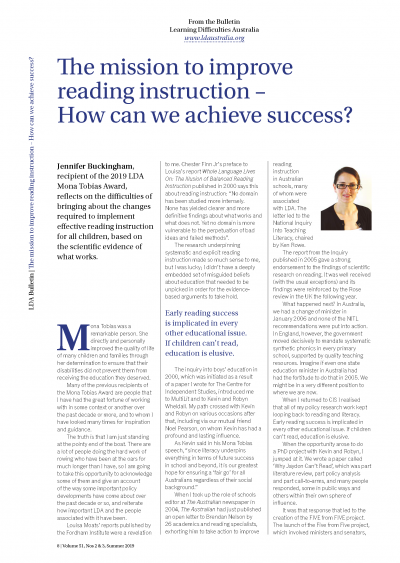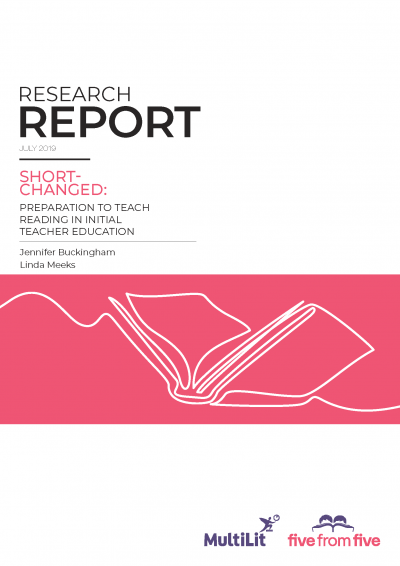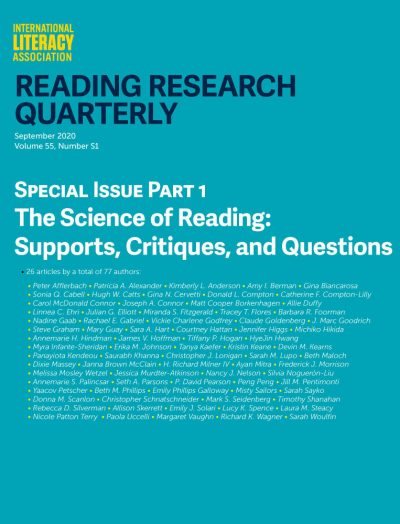Reading ability is profoundly important, for individuals and for the societies of which they are a part. Research indicates...
Reading ability is profoundly important, for individuals and for the societies of which they are a part. Research indicates that we should be successfully teaching 95% of children to read, yet, in reality, high rates of reading failure are...
Reading ability is profoundly important, for individuals and for the societies of which they are a part. Research indicates that we should be successfully teaching 95% of children to read, yet, in reality, high rates of reading failure are common in western, industrialized nations. In large part, this reflects a failure to translate into practice knowledge derived from the scientific study of reading and reading instruction and, indeed, to the rejection in some circles of the notion that there is a science of reading, in the same way that there is a science of memory, learning, and cognition. In this article, I suggest the Science of Language and Reading (SOLAR) framework as a way of positioning oral language as a central driver of reading acquisition. The SOLAR framework is illustrated via the Language House schema, which considers the social-emotional contexts for language acquisition and reading instruction, alongside the ongoing development of prosocial interpersonal skills and mastery of sufficient language and reading skills by early adulthood to be able to function as part of the social and economic mainstream. I argue that speech-language therapy has much to offer to the promotion of evidence-based early reading and writing instruction and support, given the linguistic nature of reading and the high comorbidity between language and reading difficulties and social-emotional disturbances in childhood and adolescence.
